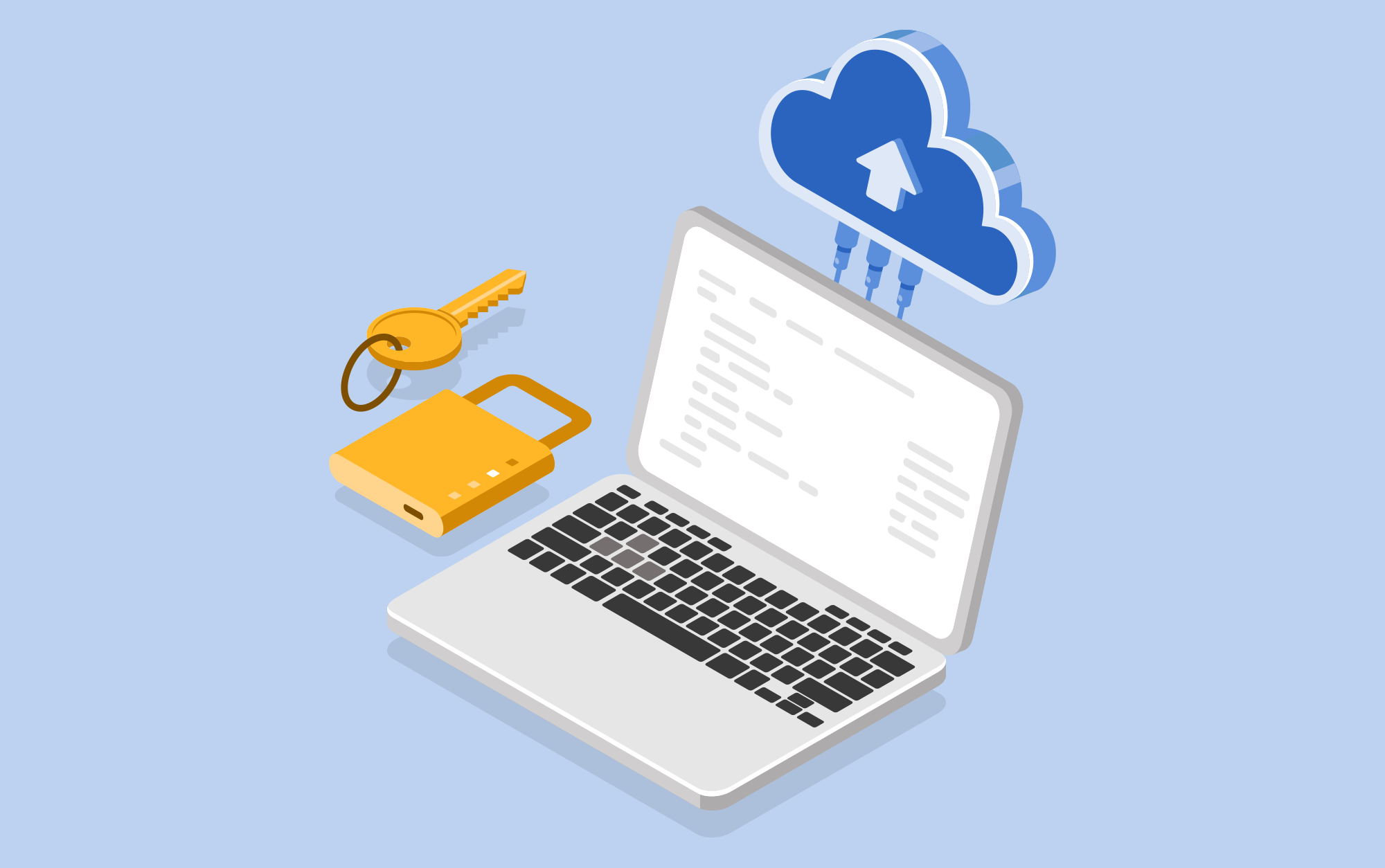Cloud computing has completely transformed the way businesses operate. According to LogicMonitor’s Cloud Vision 2020: The Future of the Cloud Study, 83% of enterprise workloads will be in the cloud by 2020. Despite the many benefits cloud computing has to offer, there are still many businesses that hesitate to make the switch to the cloud for many reasons, including security concerns.
Is your business still contemplating whether or not to make cloud computing part of your business strategy? Here are some benefits of cloud computing including how it can actually help protect and make your business more efficient.
1. Data Security
Businesses today are operating in an era where data breaches pose a potential threat. 66% of IT professionals say security is their most significant concern in adopting an enterprise cloud computing strategy, according to LogicMonitor’s. There are also other things that can lead to loss of critical data, including:
- Device loss such as a laptop or mobile phone
- Loss of data storage hardware such as hard drives, flash drives, or memory cards
- Data loss through hardware and software theft
One of the responsibilities of running a business includes being the custodian of critical data. This includes your client’s private data, your financial information, proprietary company data, employee’s information, and other critical information. Cloud computing has evolved in such a manner that it offers the opportunity to keep your business data on a need-to-know basis. Cloud computing allows you to lock information and protect it with data encryption and passwords. This makes it more difficult for hackers to access information. In the case of lost hardware, cloud computing ensures that all data is backed up and can be retrieved from another device.
According to RapidScale, 94% of businesses say they saw an improvement in security after implementing cloud solutions.
Implementing Cloud Computing also allows you to take advantage of your cloud provider’s enterprise operations, giving you access to millions (or billions) of dollars in infrastructure and security spending that these providers budget every year.
In addition, cloud computing allows software vendors to remotely upgrade their operating system and apply new improvements to, or enhance the performance of, the security of private information. No longer will you need to rely solely employ in-house IT professionals to fix your technological problems. Cloud computing cuts your business operating costs, ensures everything is running smoothly and is one of the most effective theft countermeasures.
2. Regulatory Compliance
Ensuring a company’s compliance with government laws and regulations is difficult for many business owners. Companies are required to comply with laws within their country and in countries where their customers live.
Compliance laws primarily protect personal data. In most locales, it’s illegal to give out information that identifies a person to a third party. The laws also have measures put in place against accidental loss or destruction of personal data. Here are some examples of regulatory compliance actions that U.S. businesses must follow:
- Sarbanes-Oxley Act of 2002
- Health Insurance Portability and Accountability Act of 1996 (HIPAA)
- Payment Card Industry Data Security Standard
- Federal Information Security Management Act
Most cloud computing providers have inbuilt mechanisms to ensure that all your related data transactions follow the data protection compliance laws. For example, some cloud providers assume responsibility for ensuring the storage, database, networking, infrastructure, and availability are all working together. In this scenario, the consumer takes responsibility for uploaded data, operating systems, encryption, and authentication (Miller, Alex. “Regulatory Compliance In The Cloud”, 30 January 2017).
When choosing a cloud computing vendor, business owners should choose providers who meet or exceed compliance standards. Several providers already have established programs in place that deal with common standards. They discuss these standards during the customer’s onboarding process. Hewlett Packard cloud security expert, Chris Steffen, states, “With the variety of cloud solutions in the marketplace, a solution exists that will mesh with a company’s compliance concerns and allow them to maintain the progress in security and compliance maturity they had achieved before migrating to the cloud.”
Clutch, a technology research company, found that “migrating to the Cloud encourages entities to engage in better security practices overall. The additional security measures enterprises implement the most are: data encryption (60%), access policies (52%) and regular audits (48%)
3. Ease of Access
When data is stored in the cloud, it becomes accessible to authorized individuals, regardless of where they are located. This allows your staff to avoid carrying large files and mobile storage devices (flash drives, hard drives, memory cards, etc.) to conferences and other critical business meetings that can be lost or stolen. The only thing employees will need to access business data is a device that runs a browser. In addition, your staff can work on a file remotely and collaborate with coworkers by sharing and editing documents stored in the cloud.
Collaboration tools, such as video conferencing, help businesses cut employee travel costs and save time. Cloud computing generally offers IP based connections, enabling your business to be run from virtually anywhere.
In addition to supporting a mobile workforce, the cloud will automatically backup any changes made to the files stored within it. This benefit allows business owners to avoid the risk of losing everything in the case of a systems failure or other type of disaster. Cloud computing authorizes employees to work in real-time. It automatically updates their data and creates copies of their files off-site where it will be safe from theft, malfunction, or loss. By eliminating the need to transport this data on employee laptops or USB drives or other physical devices, you also lower the risk of accidental data leakage from lost and stolen equipment.
These are the three main ways in which you can use cloud computing to protect your business. Many businesses, both large and small, are moving to the cloud. It helps companies leverage technology to do more with less. Smaller entities who are seeking to reduce their costs and compete with larger companies are strategically shifting towards the cloud.
About Level365:
Level365 offers a complete Unified Communications as a Service (UCaaS) solution with enterprise voice that is customized and scalable for your business. Our service seamlessly integrates communication among desk phones, computers, and mobile devices to support remote teams and provide flexibility for on-site staff. The UC platform extends beyond voice communications with Unified Messaging, Presence, Chat/SMS, Cloud Faxing, Business Systems Integrations and more.





